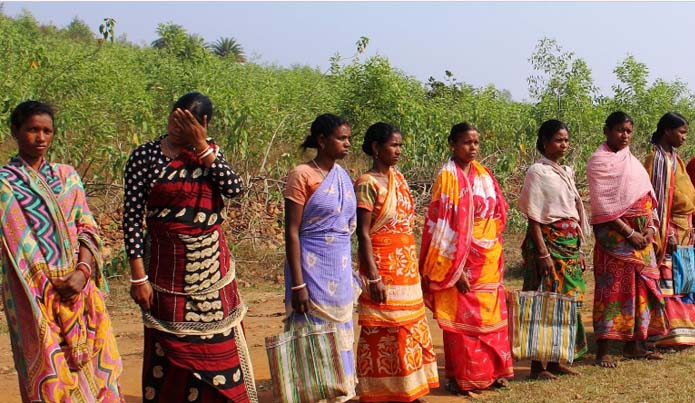Plantation on a barren hillock in West Bengal stops erosion, attracts birds

Rinku Gope’s hamlet Paharkol lying in Bankura district of West Bengal has become an attraction for outsiders. This Adivasi woman belonging to the Santhal tribe has helped revive a hillock believed to be the resting place of local deity Paharsene.
Once a bare hillock in the hamlet of 44 households, it is now a green haven with trees that attract birds and also lock in the soil, preventing erosion.
“Everyone here believes that our deity blesses us by bringing monsoon rainfall during the kharif season when farmers sow paddy. So, every year we offer worship during the winter harvest festival of Poush Sankranti celebrated in January by visiting the hill top to appease him,” Gope told Mongabay-India. While across Bengal the festival is celebrated in homes by making the traditional sweet pitha, in Paharkol, women climb atop the sacred hillock to sacrifice a hen followed by cooking delicacies as offerings to Paharsene.
Agriculture is the main occupation in Paharkol. Like most farmers in the hamlet, Gope has land measuring about two acres on which she cultivates paddy in summer, the dominant crop in the region, as well as tomatoes and mustard during winter. Bankura district in the western part of Bengal and adjoining Purulia are barren, covered mostly with red soil. A good monsoon is the only hope for small farmers. Even though there is a dam in Paharkol lying within 100 metres on the Shilabati river, adequate rain is needed for the dam to be full of water. Gope says she is happy because the water level in the dam has increased after the hillock was revived.

